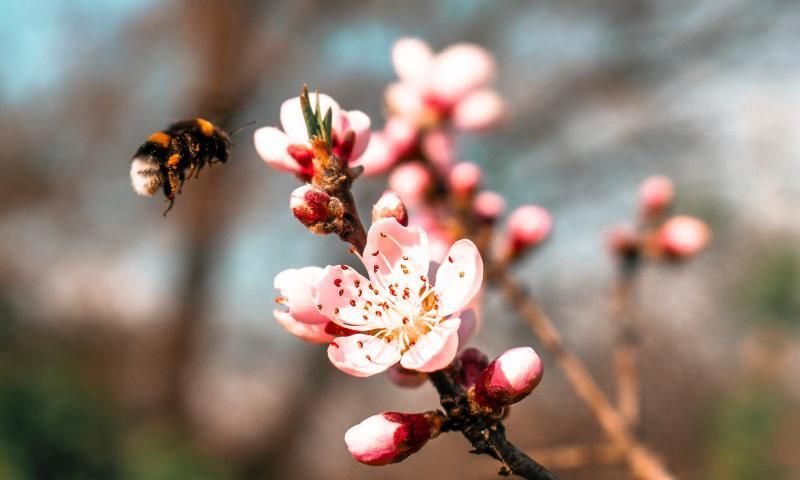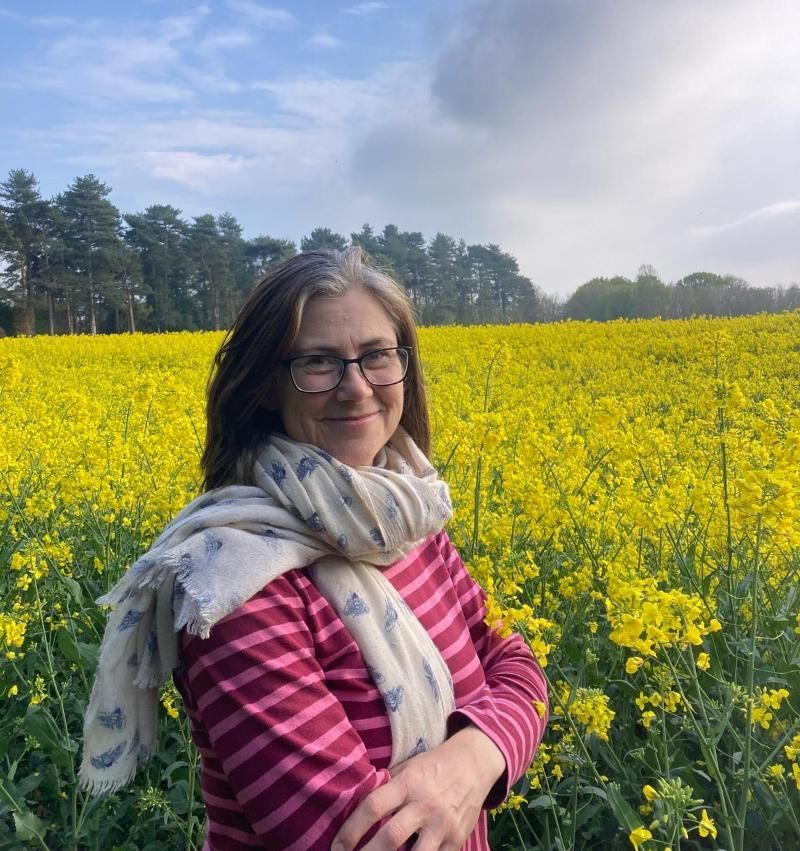The EU’s 10% natural habitat target is insufficient for pollinator recovery
Posted on: 26 September 2025
Bees, butterflies and other insects have too little natural habitat around them to survive, according to a new study published in leading international journal Science. The study shows that insects need much more space to recover than current aims set out in the EU Biodiversity Strategy for 2030, and it also emphasises that habitat quality must be taken more into account.
Insects contribute to ecosystem services by pollinating crops and wild plants, but their populations have been declining for years. The new study shows that better managing existing natural habitats, such as by promoting hedges, woodlots and extensive grasslands is helpful, but it is insufficient to halt pollinator loss.
Crucially, pollinators need more habitat. To achieve this, the EU Biodiversity Strategy aims to bring back high-diversity landscape features in 10% of the agricultural landscape.
But the current study, which analyses and summarises 59 studies worldwide, shows that these insects need more habitat, namely between 16 and 37% habitat coverage in farmland areas for effective protection.

Area and quality must increase
The study examined how the area and quality of natural habitats influence the populations of wild bees, bumblebees, hoverflies, and butterflies. For all species groups, this simple relationship rang true: the more natural habitat, the more pollinators in farmland areas.
Habitats with more flowering plants also harboured more pollinators of all groups than areas with few flowers. “However,” first author Gabriella Bishop from Wageningen University & Research says, “it is better to focus on increasing the area of natural habitats first, instead of managing small habitats, even when they have many flowers.”
Quality and longevity
Pollinator conservation in Europe focuses heavily on temporary measures on small areas of productive land, such as wildflower strips along crops. Previous research has shown that this can lead to a temporary increase in insects and pollinators. However, the new study shows that much more habitat is needed and that the quality of the new habitats must be guaranteed in the long term.
Policy relevance – for the EU, and Ireland specifically
There is increasing evidence that biodiversity is important, not just for nature, but also for people. Pollinators, for instance, ensure the production of many of the crops that people rely on for food, as well as the wild plants that form ecosystems that are crucial for resilience in the face of climate change. The recently adopted EU Nature Restoration Regulation therefore aims to halt the decline of biodiversity in general and in pollinators specifically.
Restoring or protecting natural habitats in agricultural landscapes is an important tool in that strategy and EU member states are currently developing concrete action plans for how to achieve this.
Prof. Jane Stout, Vice President for Biodiversity and Climate Action at Trinity College Dublin, is a co-author. Outlining the relevance for Ireland, she said: “About 13% of Ireland is officially protected for nature under EU nature directives, but most of those habitats are not in a good state for nature. About 12% of our land is forested and about 64% is farmed – most of it quite intensively – so we probably fall some way short of the 16-37% the new work suggests is viable, especially in the more intensively farmed areas.”
“Regardless of these land use measurements though, the most important thing is the quality of any habitat and how different habitat patches join up. There’s lots of potential in the uplands for nature restoration, and elsewhere for nature-friendly, regenerative farming, and micro-interventions like ponds, hedgerows, and species-rich grasslands, which cumulatively make a difference.”
“There are some great examples of this already across Ireland so we know it can be done, but farmers must be supported financially and in terms of other resources, such as via access to information and advice. It’s not a case of stopping farming to protect land for nature, but farming in a way that allows nature to also thrive.”
 Prof. Jane Stout.
Prof. Jane Stout.
The multi-collaborator ReFarm project, led by Trinity, seeks to support such nature-positive actions on farms; develop a sustainable funding mechanism for farmers; and track outcomes of related initiatives.
Pollinators need support away from farms too
Scientists also stress that we don’t just need good quality habitat for nature on farms, but that pollinators in urban areas and other non-farmed private lands also need it. In Ireland, this is what the All-Ireland Pollinator Plan is trying to address: improving quantity and quality of habitat for pollinators on farmland, in urban areas, protected sites, and state-owned and private land, so that all pollinating species can survive and thrive across the island.
“Another important and sometimes overlooked point is that in the Irish context it’s not all about crop pollination,” added Prof. Stout.
“We need pollinators for most of our wild plant species as well, and those species are important in creating and maintaining healthy ecosystems, which underpin regenerative agriculture and fuel the bioeconomy. They also contribute to climate action, landscape aesthetics and culture, and to our own health.”
This is relevant in the context of Ireland currently developing its Nature Restoration Plan, as part of the EU Nature Restoration Regulation.
“Objective targets are important but we must not fall into the trap of just aiming for the lowest tick-box target when it comes to supporting land for nature. We should be going above and beyond,” said Prof. Stout.
“Thirty per-cent of Irish bee species are at risk of extinction, which is around three times higher than the EU average (of 9%), and we have a lower absolute number of species because of our geography, which probably means our ecosystems are less resilient to loss of species than ones that have more species to start with.”
The published research article can be read on the Science website.
Media Contact:
Thomas Deane | Media Relations | deaneth@tcd.ie | +353 1 896 4685
